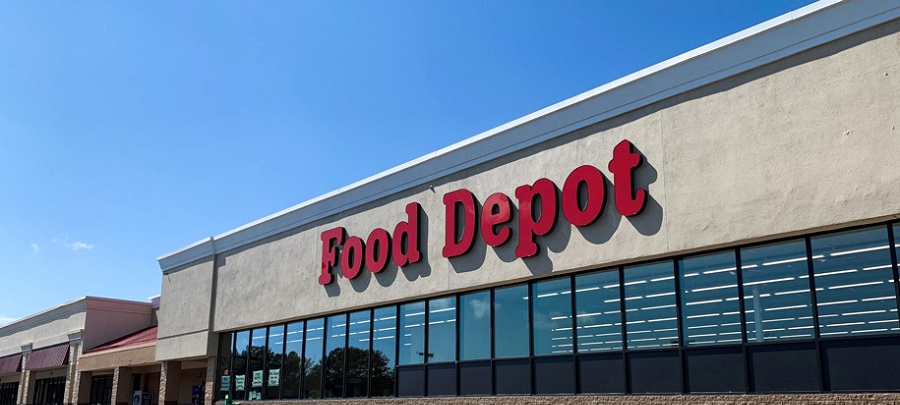Depot food refers to food that is distributed through a food depot, which is a organization that collects and distributes food to those in need. These organizations often obtain their food through donations from grocery stores, farmers, and food distributors. They may also purchase food from wholesale suppliers. Food depots typically provide food to those facing food insecurity, including low-income families, the homeless, and people experiencing a crisis such as a natural disaster.
Food depots typically have a wide variety of food available, including fresh produce, meats, dairy products, and non-perishable goods. They may also offer other resources such as cooking classes, nutrition education, and assistance with government food assistance programs. Food depots can be run by non-profit organizations, churches, or government agencies, and may be staffed by volunteers or paid staff.
Accessing food from a food depot is typically done through an application process. Eligibility may be based on income, residency, or other factors. Some depots may also require proof of need, such as a referral from a social worker or other professional.
Food depots are an important resource for many communities, as they provide access to healthy food for those who may not be able to afford it otherwise. They also help to reduce food waste by diverting excess food to those in need.
What types of food are typically found at a food depot?
A food depot typically offers a wide variety of food items, including fresh produce, meats, dairy products, and non-perishable goods. Fresh produce can include fruits and vegetables that may be nearing their expiration date or have cosmetic blemishes, but are still safe to eat. Meats can include chicken, beef, pork, and fish. Dairy products include items like milk, cheese, and eggs. Non-perishable goods include canned and packaged goods such as soups, beans, grains, and pasta. Additionally, some depots also offer frozen foods such as frozen vegetables, fruits, and meat. In some cases, they may also offer bread, pastries, and other bakery items, or even personal care items. The availability and types of food vary depending on the donation and sourcing of the specific depot.
How is the food at a depot different from that found at a regular grocery store?
The main difference between food at a depot and that found at a regular grocery store is the source of the food. Food at a depot is typically obtained through donations from grocery stores, farmers, and food distributors. It may also be purchased from wholesale suppliers. The food may be close to or passed its expiration date or may have cosmetic blemishes, but it is still safe to eat. The food is then distributed to those in need at a reduced cost or for free.
In contrast, food at a regular grocery store is typically purchased directly from manufacturers or growers and is intended for retail sale. The grocery store will have a wider variety of products and brands and will not be expired or close to expiration, but it will be sold at regular prices.
Additionally, food depots may also offer other resources such as cooking classes, nutrition education, and assistance with government food assistance programs that you wouldn't find in a regular grocery store.
Can you purchase fresh produce at a food depot?
Yes, fresh produce can typically be found at a food depot. The produce may be nearing its expiration date or have cosmetic blemishes, but it is still safe to eat. Food depots typically receive donations of fresh produce from farmers, grocery stores, and other food suppliers. The produce may be seasonal, so the selection will vary depending on the time of year.
It's worth noting that the quantity and the variety of fresh produce may vary depending on the location, season and the source of the specific depot. Some depots may have a wider selection of fresh produce while others may have a more limited selection. But in general, fresh produce is an important component of the food supply at many depots, as it provides a vital source of vitamins and minerals for those who may not have access to them otherwise.
Are food depots typically non-profit organizations?
Many food depots are run by non-profit organizations, but not all of them are. Food depots can also be run by churches, government agencies, and other entities.
Non-profit organizations are a common operator of food depots because they often have a mission to serve the community and provide assistance to those in need. They rely on donations, grants, and fundraising to support their operations and may have a volunteer staff. Non-profits are able to accept donations of food and funds from individuals, businesses, and foundations to support their programs.
Government-run depots on the other hand, may have more funding from the government to support their programs and may also have paid staff.
Food depots run by churches may have a mix of funding from the government, donations and fundraising, and also rely on volunteers to run their programs.
In summary, Food depots can be run by various entities including non-profits, churches, and government agencies, and the funding and operations may vary accordingly.
How do food depots obtain their food supply?
Food depots obtain their food supply through a variety of sources. One of the main ways is through donations from grocery stores, farmers, and food distributors. These organizations may have surplus food that they are unable to sell, but that is still safe to eat. They may also donate food that is nearing its expiration date. Food depots also partner with food banks and other organizations that collect and distribute food to those in need.
Another way food depots obtain food is by purchasing from wholesale suppliers. This may include items such as canned goods, grains, and other non-perishable items that can be purchased in bulk at a reduced cost.
Food depots may also receive government funding for purchasing food, and in some cases, also receive donations from individuals and organizations in the community.
In addition to obtaining food, food depots may also grow their own food through community gardens, or receive donations of fresh produce from local farmers.
Overall, food depots work to obtain a variety of food items to provide a balanced diet for the people they serve. They work hard to get the most food they can to meet the needs of the community they serve while operating within their budget.
Are there any restrictions on who can purchase food from a depot?
Restrictions on who can purchase food from a food depot vary depending on the specific depot and its policies. Some food depots may be open to the general public and allow anyone to purchase food, while others may only serve certain populations, such as low-income individuals or families, the homeless, or people facing a crisis.
In general, most food depots require some form of verification of need, such as proof of low income, a referral from a social worker, or proof of residence in a certain area. Some depots may have income guidelines or limits on the amount of food that can be received by an individual or family.
Additionally, some depots may only serve specific communities or populations, such as the elderly, veterans, or people experiencing homelessness.
It's important to note that each food depot may have different eligibility criteria and policies, and it's best to check with the specific depot or visit their website to understand their policies and requirements.
In general, food depots are meant to help those who are in need and have limited access to food, and they work to make sure their food supply is reaching the people who need it the most.
Are there any special deals or discounts offered at food depots?
Special deals and discounts at food depots vary depending on the specific depot and their policies. Some food depots may offer discounts or special deals to certain populations, such as low-income individuals or families, or senior citizens.
Many food depots offer their food at reduced prices or even for free. The food they distribute is usually donated by grocery stores, farmers, and food distributors, and may be close to or past its expiration date or may have cosmetic blemishes but still safe to eat.
In some cases, food depots may offer bulk purchasing options, where customers can purchase larger quantities of food at a discounted price. Some depots may also offer discounts for customers who bring their own reusable bags or containers.
Additionally, some food depots may offer special deals or promotions at certain times of the year, such as during holidays or special events.
It's worth noting that each food depot may have different policies and deals and it's best to check with the specific depot or visit their website to understand their policies and any deals they offer.
How does a food depot ensure the safety and freshness of their food?
Ensuring the safety and freshness of food at a food depot is of the utmost importance. Food depots have several measures in place to ensure that the food they distribute is safe to eat and of good quality.
First, food depots typically have strict guidelines for accepting donations. They may only accept food that is within its expiration date, and that is properly packaged and labeled. They may also have protocols in place for inspecting and sorting food donations to ensure that they are safe to eat.
Food depots also have strict storage and handling guidelines to ensure that the food is kept at the correct temperature and protected from contamination. They use industrial refrigerators and freezers to store perishable items and they properly rotate their stock to ensure that the oldest items are used first.
Additionally, food depots may have policies in place for dealing with expired or spoiled food, such as properly disposing of it or giving it to organizations that can use it for animal feed or composting.
Food depots also work with health departments and other regulatory agencies to ensure that they are in compliance with all relevant food safety laws and regulations.
Overall, food depots take the safety and freshness of their food very seriously and have strict guidelines in place to ensure that the food they distribute is safe to eat and of good quality.
Is there a limit on how much food can be purchased at a depot?
The limit on how much food can be purchased at a food depot varies depending on the specific depot and its policies. Some food depots may have a limit on the amount of food that can be received by an individual or family, while others may not have a limit.
For example, some food depots may have a limit on the number of visits per month or the amount of food that can be received per visit. This is done to ensure that the food supply is reaching as many people as possible and that no one person or family is taking more than their fair share.
Others may not have a limit, but may ask customers to be mindful of their needs and the needs of others when choosing the amount of food they take.
Additionally, some depots may have a limit on the amount of certain items that can be received, such as a limit on the number of cans of a particular type of food, or a limit on the number of fresh produce.
It's worth noting that each food depot may have different policies, and it's best to check with the specific depot or visit their website to understand their policies and any limits they may have.


